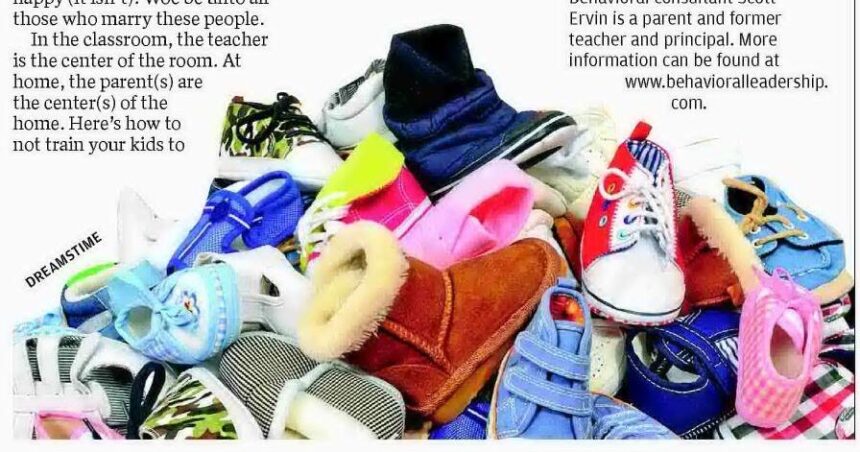Q: I have been a parent for 14 years and a teacher for 20 years. I have just started using your strategies after reading your book. I have seen a huge improvement in my students’ behavior, but after this crazy year, I’m still tired. I am going to be back at home this summer with my 12and 14-year-old children, and I now realize that I have not trained them to be as self-sufficient as I have started to train my students to be, which seems a little silly since I teach 7and 8-year-olds. I think my own children are needy because I have let them be needy. How do I turn this around?
A: Ah, the child-centered home: creator of jerky children who become jerky adults.
Treating your kids as if they are the center of your world creates kids who think they are the centers of the universe. We all know people who were raised in “child-centered homes.” They are under the false impression that they are special (they are not). They think it is someone else’s job to cater to them and make them happy (it isn’t). Woe be unto all those who marry these people.
People are also reading…
In the classroom, the teacher is the center of the room. At home, the parent(s) are the center(s) of the home. Here’s how to not train your kids to be helpless. Notice that you are training them to be self-sufficient by doing less work than you have ever done before.
Kid: Oh, Lordy, I don’t know where I put my shoes!
Kid Whisperer: Oh, dear. (Kid Whisperer goes on living his life as a normal human person.)
Kid: I said I don’t know where I put my shoes!
Kid Whisperer: Oh, dear. You sure did. (Kid Whisperer leaves the room to do something that he enjoys.)
Kid: (Following Kid Whisperer out of the room) They just disappeared!
Kid Whisperer: Oh, dear. Is this a big enough problem for you to solve?
Kid: What?! Uh, my shoes are missing!
Kid: What do you mean “Oh dear”? Find my shoes for me.
Kid Whisperer: I only keep track of my own shoes. (Looking down) There they are! Problem solved.
Kid: I’m going to be late!
Kid Whisperer: Oh, dear. Is this a big enough problem for you to solve?
Kid Whisperer: I mean, I only solve my own problems, and I only take the time to solve the problems that I think are important enough to solve. Is this one big enough for you to solve?
Kid: Yes, it’s a huge problem! Kid Whisperer: Do you want to know how others have solved this problem?
Kid Whisperer: Some people just express frustration in a generalized sort of way and hope things turn out as well as possible.
Kid: Very funny. What else?
Kid Whisperer: Some people think back to where it is in the house that they leave their shoes 95% of the time.
Kid: Behind the bathroom door! (Kid sprints to his traditional shoe resting place, where he solves his problem.)
The more problems we solve for our kids, the less prepared they are to solve their own problems. I solve kids’ problems when they are physically incapable of solving them (I get my daughter’s bike out of storage because she’s too short to do it) and when I have to solve the problem to keep a kid safe from serious injury (I pull her out of oncoming traffic). Outside of these two reasons, solving kids’ problems hurts the kids we’re trying to help.
Behavioral consultant Scott Ervin is a parent and former teacher and principal. More information can be found at www.behavioralleadership.com.





